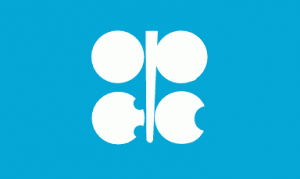Oil production this month by the Organization of Petroleum Exporting Countries rose to the highest level in more than three years, led by a rebound in Libyan output, a Bloomberg News survey showed.
Production increased 183,000 barrels, or 0.6 percent, to an average 30.9 million barrels a day in January from a revised 30.717 million the prior month, according to the survey of oil companies, producers and analysts. Output was at the highest level since November 2008. The December total was revised higher by 50,000 barrels a day.
OPEC decided at a Dec. 14 meeting in Vienna to increase its production ceiling to 30 million barrels a day, the first change in three years. The new target is for all members of the group, including Iraq, which had previously been exempt from monthly targets. The group will review quotas at its next meeting, scheduled for June 14.
“It makes sense for them to sell oil when it’s at $100 instead of just sitting on it,” said Michael Lynch, president of Strategic Energy & Economic Research in Winchester, Massachusetts. “Prices haven’t been moving on supply and demand as much as other factors, so there’s little risk for them.”
Crude oil for March delivery dropped 30 cents, or 0.3 percent, to settle at $98.48 a barrel on the New York Mercantile Exchange. Futures touched $103.74 a barrel on Jan. 4, the highest level since May 11, on concern that Iran would disrupt shipments from the Persian Gulf.
Libya output Gains
Libyan output rose 225,000 barrels to 925,000 a day this month, the highest level since February, the survey showed. Production in the country had tumbled to 45,000 barrels a day in August from 1.585 million barrels a day in January 2011, the last month before an uprising that overthrew the government of Muammar Qaddafi disrupted output.
“Libyan oil facilities didn’t suffer a lot of damage,” Lynch said. “It will be interesting to see how far they can go without some major new investment.”
Saudi Arabia, OPEC’s biggest producer, decreased output by 50,000 barrels to 9.65 million barrels a day in January. December production was revised 50,000 barrels a day higher.
Nigerian production fell 80,000 barrels a day to 2.14 million this month, the biggest decline of any member, the survey showed. Royal Dutch Shell Plc said it lifted a force majeure on Bonny Light crude oil loadings in Nigeria yesterday after completing repairs to the Nembe Creek Trunkline. The pipeline was shut last month because of leaks.
(Source: Bloomberg)





